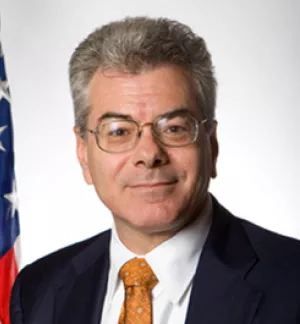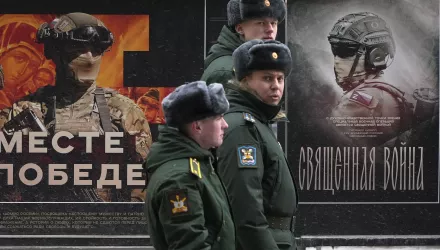I’d like to focus my remarks on the status of the P5+1 negotiations with Iran and in particular the prospects for completing a comprehensive agreement by the deadline of November 24.
Since the extension of the Joint Plan of Action for four months on July 24, the negotiators have established a more sensible process, with fewer formal multilateral P5+1 meetings with Iran in favor of more bilateral sessions, including two extended meetings between the full Iranian and American teams in Geneva in August and September. These bilateral U.S.-Iran talks have continued in New York this week
This procedural shift is useful because the P5+1 format is too cumbersome for real negotiations. Any deal will have to be negotiated directly by the U.S. and Iran and then ratified by the P5+1 and ultimately the UN Security Council.
Unfortunately, the two sides remain very far apart on the most contentious and the most important issue in the negotiations, which is Iran’s status as a nuclear weapons threshold state.
That means Iran’s physical capacity to produce weapons grade enriched uranium, which is determined by the technical details of Iran’s enrichment program, such as the number and types of centrifuge machines, size of the stockpile of enriched uranium, limits on enrichment levels, restrictions on research and development, etc.
The U.S. is demanding that Iran significantly reduce its existing enrichment capacity (equal to about 10,000 operating IR-1 centrifuges) and to maintain these restrictions for up to 20 years. Iran, on the other hand, rejects any reduction of its current capacity and insists on building up a much larger industrial scale capacity within a few years.
I could imagine a compromise that would require very difficult and painful concessions from both sides, but neither side feels compelled to make such hard choices.
The Supreme Leader seems to believe that the Ukraine Crisis and the Rise of ISIL has weakened and distracted the U.S. and reduced pressure on Iran to meet P5+1 demands.
He also appears confident that Iran’s economy – under President Rouhani’s more competent management – is better equipped to withstand a resumption of sanctions if the Joint Plan of Action expires.
By same token, I see no sign that President Obama is prepared to accept a “bad deal” that would allow Iran to retain or develop a significant enrichment capacity in the near term
Such an agreement would badly damage U.S. strategic interests, deeply upset U.S. allies in the region, and face stiff Congressional opposition, at a time when President Obama wants to focus his energies on prosecuting the campaign against ISL.
Moreover, the U.S. administration also believes it can put additional pressure on Iranian oil exports if the talks collapse because growing oil supply and decreasing demand has created a soft international market in which further restrictions on Iranian oil exports would not trigger price increases.
So, at this stage, it’s difficult to see how a comprehensive deal can emerge by late November.
As we near the deadline, both sides will try to maximize their bargaining leverage by putting forward proposals to demonstrate their reasonableness and by threatening to break off the negotiations if the other side does not respond positively.
Nonetheless, both Washington and Tehran probably prefer to avoid a collapse of the talks. The status quo is not perfect, but it is tolerable.
For Iran, the Joint Plan of Action provides a respite from additional sanctions so it can stabilize its economy without having to sacrifice its nuclear program.
For the U.S., the current agreement freezes or limits most of Iran’s nuclear activities without sacrificing the overall sanctions regime.
In addition, both sides share an interest in avoiding increased bilateral tension over the nuclear issue that would complicate efforts against their common enemy ISIL.
Finally, for purely diplomatic reasons, it will difficult for either Washington or Tehran to walk away from the table if the other side is prepared to continue. The other P5+1 countries will want to keep the process alive and neither Washington nor Tehran wants to be blamed for causing a new round of tensions over the nuclear issue.
So, I expect the U.S. and Iran will ultimately explore options to extend the negotiations under a new interim or partial agreement.
Presumably, the quid pro quo in any new interim agreement (like the current agreement) would involve some additional nuclear constraints and steps by Iran in exchange for some additional sanctions relief by the U.S. and Europe and set a new deadline for completing a final deal.
Despite the impasse over the scale and scope of Iran’s enrichment program, the negotiators have made progress on several other issues, such as converting the Fordow enrichment facility to a research and development facility and converting the Arak heavy water research reactor to produce less plutonium.
Of course, any new interim deal will face resistance within the U.S. Congress and by U.S. allies in the Middle East if it does not include sufficient additional nuclear constraints or gives away too much sanctions leverage.
Presumably, a new interim agreement will also be resisted by some in Iran for the opposite reason: that it gives away too much nuclear capability without getting enough sanctions relief in return.
At this point, I think it’s premature to speculate whether the two sides can agree on terms for a new interim agreement that would pass political muster in both capitals or whether the talks will collapse and we will return to the previous cycle of escalating sanctions and escalating nuclear activities.
Even if the talk collapse, however, and Iran resumes nuclear activities frozen under the Joint Plan of Action, Iran’s ability to produce nuclear weapons in the near term is severely constrained by political and technical factors and the risk of provoking a military attack.
Similarly, even if the U.S. resumes its pressure campaign, its propensity for attacking Iran is very limited, as long as Iran does not take overt actions to produce nuclear weapons.
In other words, whether or not the current negotiations are extended, the Iranian nuclear issue is likely to remain unresolved for the immediate future.
Samore, Gary. “Future of the Iran Nuclear Negotiations.” September 19, 2014



